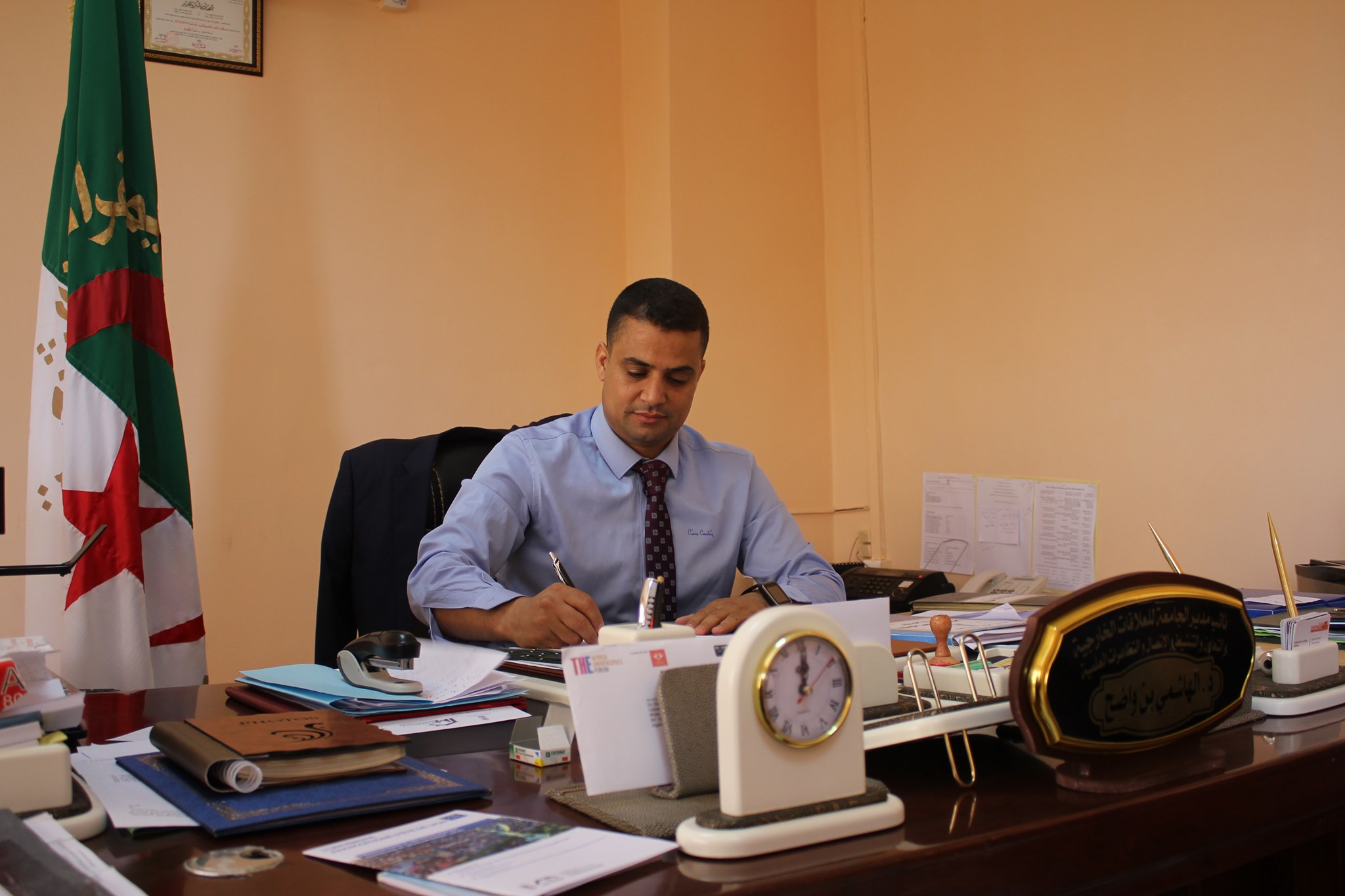Letter of the rector
Dear students, The degree of students’ interest in their education is an interesting indicator of the good health of the university. Encouraging the student to be a part of his education training has always been a problem because the so far deployed methods or procedures have failed to catch his attention to achieve actions other than the academic performance required for the purpose to develop citizenship, autonomy, humanism … University of M’sila, which is making an unprecedented effort to put the student at the center of his education training, has read out the methods used in European and American institutions in order to come up with a procedure anchored to our specificities. I have the honor to inform you of the steps we have taken. Titled “How to become a 5-star graduate”, it consists in making the student who wants it, complete a 5-step procedure during his university studies, each one evaluated by a star. At the end of his university studies, the student will be evaluated on the 5 steps by a mixed jury comprising members of the university and members of the socio-economic world. Depending on the results obtained, the winners per promotion will be recruited by companies; others will be admitted to higher education at university.
The degree of students’ interest in their education is an interesting indicator of the good health of the university. Encouraging the student to be a part of his education training has always been a problem because the so far deployed methods or procedures have failed to catch his attention to achieve actions other than the academic performance required for the purpose to develop citizenship, autonomy, humanism … University of M’sila, which is making an unprecedented effort to put the student at the center of his education training, has read out the methods used in European and American institutions in order to come up with a procedure anchored to our specificities. I have the honor to inform you of the steps we have taken. Titled “How to become a 5-star graduate”, it consists in making the student who wants it, complete a 5-step procedure during his university studies, each one evaluated by a star. At the end of his university studies, the student will be evaluated on the 5 steps by a mixed jury comprising members of the university and members of the socio-economic world. Depending on the results obtained, the winners per promotion will be recruited by companies; others will be admitted to higher education at university.
The 5 steps for B and M are briefly described below:
• First star: Academic performance (to be ranked among the first students).
• Second star: Make connection with the company (Achievement of practical cases in enterprises, covering some aspects of the student’s training education).
• Third star: Development of professional and transversal skills (foreign languages, Computer science tools, quality tools, management, sports and cultural practices, reflection games, organization of conferences debates on social issues ..).
• Fourth star: Follow distance or training education with mobility credits (MOOC or by any other online means, Erasmus program, academic mobility mainly towards the south of the country).
• Fifth star: Social involvement and concern (charity actions (for example: hospital visits and patient support), academic collaboration with accredited bodies in Algeria, student tutor-counselor, student delegate to the various educational and scientific councils of the department at university.
The same procedure, slightly adjusted, could be applied for cycle D. It is obviously necessary to draw up a regulation governing the implementation and to specify this procedure before being submitted to the scientific council for approval.
Yours faithfully.
















